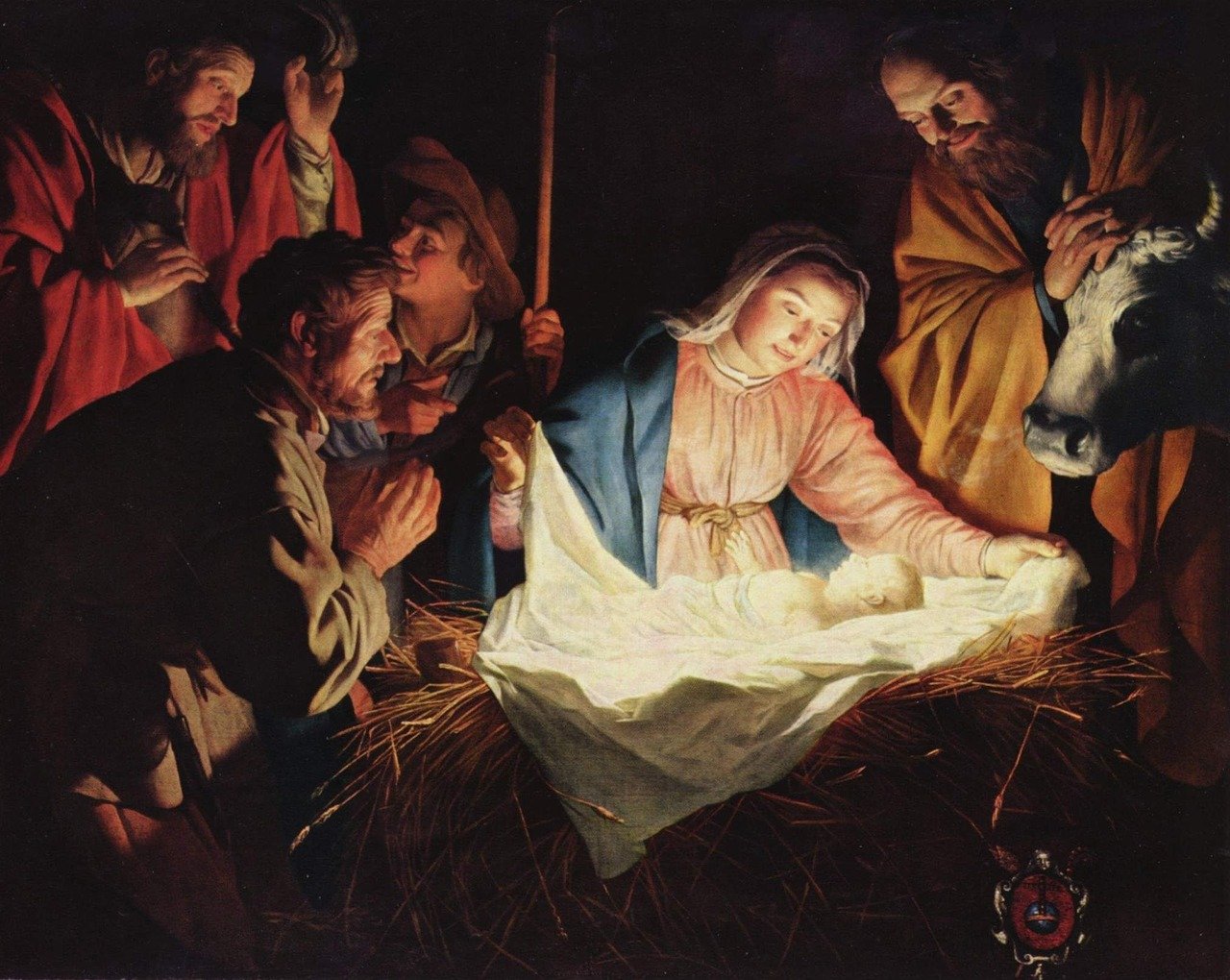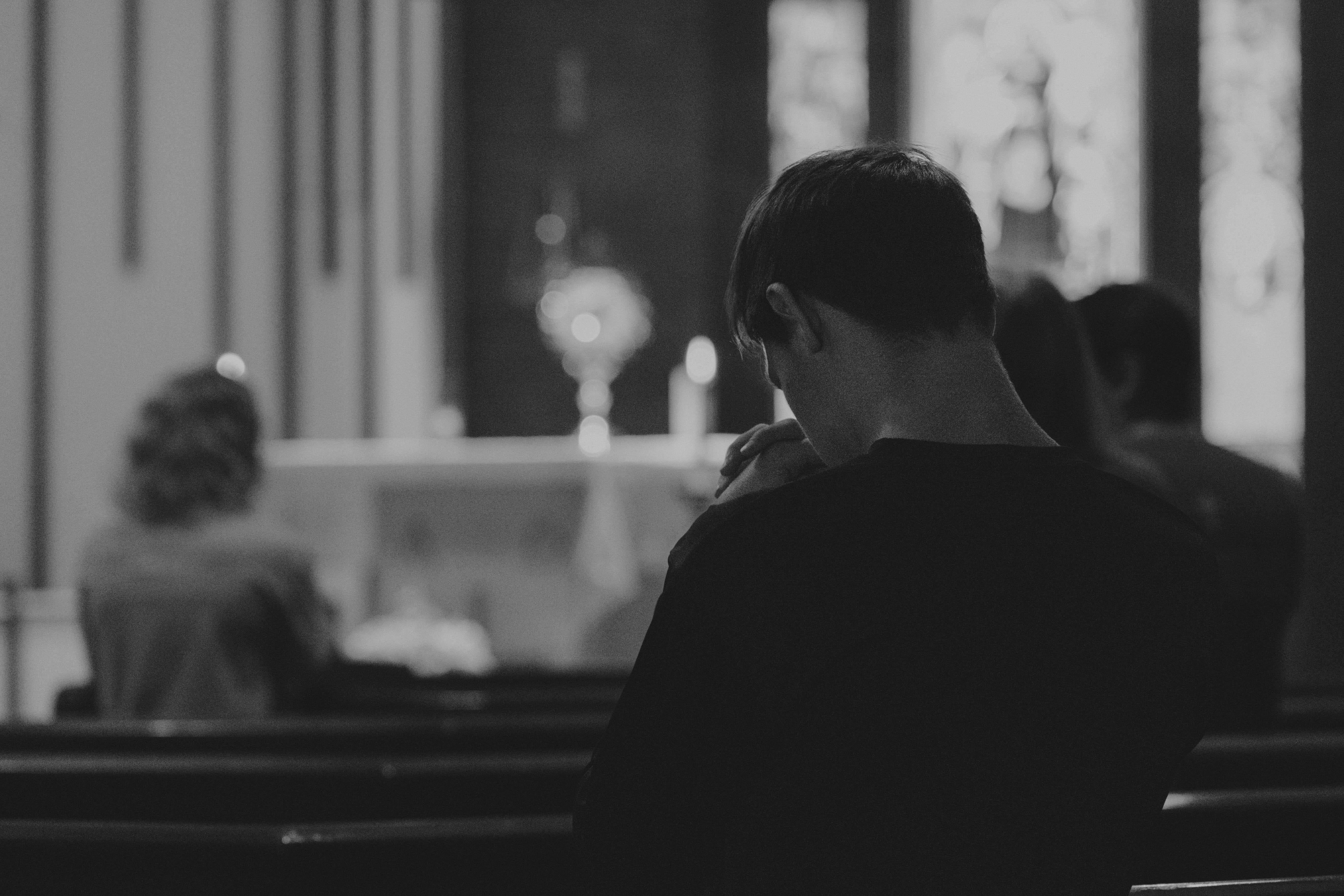I just love Jesus’ attitude in this Gospel passage. He’s a man on a mission and can’t be bothered by what other people are saying. Of course, this is true throughout the Gospels, but there’s something about the matter-of-fact way Jesus lays out his weekly schedule that gets me.
In a world full of distractions, some good, some not so much, it is easy to get overwhelmed with everything we “need” to get done: work, family, sports practice, volunteering, watching the big game, gardening, learning a new language or hobby, laundry, and ample time scrolling social media. It’s no wonder we are overwhelmed and over scheduled. While social media and the internet weren’t around in Jesus’ time, gossip and societal pressure were just as alive and pervasive.
Jesus clearly had a reputation if Herod’s plans were so plainly known. Herod felt threatened by Jesus because Jesus was doing all the things the Messiah was prophesied to do – heal the sick, cure the lame, make the blind see. Jesus was traveling, casting out demons and preaching to large crowds. He was busy.
And yet, Jesus also appears laser-focused on what he is doing in the present moment. He tells the Pharisees who are warning him about Herod’s intentions that it doesn’t matter what Herod plans. Today and tomorrow (meaning the present and the near future), Jesus will be focused on casting out demons and healing people. He isn’t looking to the left or to the right, considering how His actions are impressing or threatening others. He isn’t pausing to bask in the honor many are giving him. He has no plans to shy away from threats, concerns, or questions from societal authorities. He knows what he is about and the work that is necessary to accomplish.
Do we know what we are about? When I look at my schedule, does it identify me as a follower of Christ? Am I laser-focused on the things of Heaven, on the mission God has for my life? Or, am I floundering through the whims and demands of a more short-sighted schedule?
It is interesting. In being intensely focused on the present moment, Jesus is able to have a heavenly perspective. He knows where the mission has called Him, He says as much when He explains that on the third day He will accomplish His purpose. But this doesn’t distract Him from the necessary work of the day He is living in.
We can live our lives in a similar manner. We can make plans and schedules but it is critical to remember that they serve us and our God-given mission, not the other way around. Everything Jesus did drew him closer to the day His mission was fulfilled on the cross. Everything we choose to do, or not do, should be considered in the same manner. As we plan our week we can ask ourselves, how is this going to bring me closer to God and closer to heaven?
Me encanta la actitud de Jesús en este pasaje del Evangelio. Es un hombre con una misión y no le importa lo que digan los demás. Claro, esto es cierto en todos los Evangelios, pero hay algo en la forma práctica en que Jesús organiza su agenda semanal que me conmueve.
En un mundo lleno de distracciones, algunas buenas, otras no tanto, es fácil sentirse abrumado con todo lo que “tenemos que” hacer: trabajo, familia, entrenamiento deportivo, voluntariado, ver el gran partido, jardinería, aprender un nuevo idioma o pasatiempo, lavar la ropa y pasar bastante tiempo navegando en las redes sociales. No es de extrañar que estemos abrumados y sobrecargados. Si bien las redes sociales e internet no existían en la época de Jesús, los chismes y la presión social eran igual de fuertes y omnipresentes.
Si los planes de Herodes se conocieran tan claramente, Jesús tenía una reputación. Herodes se sintió amenazado por Jesús porque estaba haciendo todo lo que se profetizó que haría el Mesías: sanar a los enfermos, curar a los cojos, dar vista a los ciegos. Jesús viajaba, expulsaba demonios y predicaba a grandes multitudes. Estaba ocupado.
Y, sin embargo, Jesús también parecía estar completamente concentrado en lo que hacía en el momento presente. Les dijo a los fariseos que le advertían sobre las intenciones de Herodes que no importaba lo que Herodes tenía planeado. Hoy y mañana (es decir, el presente y el futuro cercano), Jesús se centraría en expulsar demonios y sanar a la gente. No miraba a la izquierda ni a la derecha, considerando cómo sus acciones impresionaban o amenazaban a otros. No se detenía a disfrutar del honor que muchos le concedían. No planeaba eludir las amenazas, preocupaciones o preguntas de las autoridades sociales. Sabía lo que hacía y el trabajo que debía realizar.
¿Sabemos lo que hacemos? Cuando miro mi agenda, ¿me identifica como seguidor de Cristo? ¿Estoy completamente concentrado en las cosas del Cielo, en la misión que Dios tiene para mi vida? ¿O me dejo llevar por los caprichos y las exigencias de una agenda más limitada?
Es interesante. Al estar intensamente enfocado en el momento presente, Jesús puede tener una perspectiva celestial. Sabe adónde lo ha llamado la misión; lo dice al explicar que al tercer día cumplirá su propósito. Pero esto no lo distrae de la obra esencial del día en que vive.
Podemos vivir nuestras vidas de manera semejante. Podemos hacer planes y horarios, pero es fundamental recordar que estos nos sirven a nosotros y a la misión que Dios nos ha encomendado, no al revés. Todo lo que Jesús hizo lo acercó al día en que su misión se cumplió en la cruz. Todo lo que elegimos hacer o no hacer, debemos considerar de la misma manera. Al planificar la semana, podemos preguntarnos: ¿cómo esto me va a acercar a Dios y al cielo?
 Kate Taliaferro is an Air Force wife and mother. She is blessed to be able to homeschool, bake bread and fold endless piles of laundry. When not planning a school day, writing a blog post or cooking pasta, Kate can be found curled up with a book or working with some kind of fiber craft. Kate blogs at DailyGraces.net.
Kate Taliaferro is an Air Force wife and mother. She is blessed to be able to homeschool, bake bread and fold endless piles of laundry. When not planning a school day, writing a blog post or cooking pasta, Kate can be found curled up with a book or working with some kind of fiber craft. Kate blogs at DailyGraces.net.
Feature Image Credit: stevepb, pixabay.com/photos/diary-journal-pen-notebook-january-614149/
The views and opinions expressed in the Inspiration Daily blog are solely those of the original authors and contributors. These views and opinions do not necessarily represent those of Diocesan, the Diocesan staff, or other contributors to this blog.


 Kathryn Mulderink, MA, is married to Robert, Station Manager for Holy Family Radio. Together they have seven children (including Father Rob), and eleven grandchildren. She is President of the local community of Secular Discalced Carmelites and has published five books and many articles. Over the last 30 years, she has worked as a teacher, headmistress, catechist, Pastoral Associate, and DRE, and as a writer and voice talent for Catholic Radio. Currently, she serves the Church by writing and speaking, and by collaborating with various parishes and to lead others to encounter Christ and engage their faith. Her website is
Kathryn Mulderink, MA, is married to Robert, Station Manager for Holy Family Radio. Together they have seven children (including Father Rob), and eleven grandchildren. She is President of the local community of Secular Discalced Carmelites and has published five books and many articles. Over the last 30 years, she has worked as a teacher, headmistress, catechist, Pastoral Associate, and DRE, and as a writer and voice talent for Catholic Radio. Currently, she serves the Church by writing and speaking, and by collaborating with various parishes and to lead others to encounter Christ and engage their faith. Her website is 
 Tami Urcia is a midwestern gal from a large Catholic family. As a young adulthood she was a missionary in Mexico, where she studied theology and philosophy. After returning stateside bilingual, she gained a variety of work experience, traveled extensively and finished her Bachelor’s Degree at Brescia University. She loves organizing and simplifying things, watching her children play sports, deep conversations with close family and friends and finding unique ways to brighten others’ day with Christ’s love. She works full time at Diocesan in the Software Department and manages the Inspiration Daily reflections. She is also a contributing writer on
Tami Urcia is a midwestern gal from a large Catholic family. As a young adulthood she was a missionary in Mexico, where she studied theology and philosophy. After returning stateside bilingual, she gained a variety of work experience, traveled extensively and finished her Bachelor’s Degree at Brescia University. She loves organizing and simplifying things, watching her children play sports, deep conversations with close family and friends and finding unique ways to brighten others’ day with Christ’s love. She works full time at Diocesan in the Software Department and manages the Inspiration Daily reflections. She is also a contributing writer on 
 Deacon Dan Schneider is a retired general manager of industrial distributors. He and his wife Vicki have been married for over 55 years. They are the parents of eight children and thirty-one grandchildren. He has a degree in Family Life Education from Spring Arbor University. He was ordained a Permanent Deacon in 2002. He has a passion for working with engaged and married couples and his main ministry has been preparing couples for marriage.
Deacon Dan Schneider is a retired general manager of industrial distributors. He and his wife Vicki have been married for over 55 years. They are the parents of eight children and thirty-one grandchildren. He has a degree in Family Life Education from Spring Arbor University. He was ordained a Permanent Deacon in 2002. He has a passion for working with engaged and married couples and his main ministry has been preparing couples for marriage.
 Deanna G. Bartalini, M.Ed.; M.P.A., is a certified spiritual director, writer, speaker and content creator. The
Deanna G. Bartalini, M.Ed.; M.P.A., is a certified spiritual director, writer, speaker and content creator. The 
 Pamela Kavanaugh is a grateful wife, mother, and grandmother who has dedicated her professional life to Catholic education. Though she has done her very best to teach her students well in the subjects of language and religion, she knows that she has learned more than she has taught. She lives, teaches, and writes in southwest suburban Chicago.
Pamela Kavanaugh is a grateful wife, mother, and grandmother who has dedicated her professional life to Catholic education. Though she has done her very best to teach her students well in the subjects of language and religion, she knows that she has learned more than she has taught. She lives, teaches, and writes in southwest suburban Chicago.


 Hailing from Nashville, Catherine is a graduate of Christendom College with a lifelong passion for words. Her love of writing and her Catholic Faith continue to shape her as a freelance editor, copywriter, and (aspiring) novelist, where she pursues her passions for the love and greater glory of God.
Hailing from Nashville, Catherine is a graduate of Christendom College with a lifelong passion for words. Her love of writing and her Catholic Faith continue to shape her as a freelance editor, copywriter, and (aspiring) novelist, where she pursues her passions for the love and greater glory of God.

 Felix Urcia was born in Lima, Peru. He moved the U.S. to complete his college degree in Computer Science at Northern Kentucky University. He is passionate about his faith, his family, education and soccer. When he is not homeschooling and caring for his young children he enjoys personal programing projects and sports analysis. He and wife live in a small town in Western Michigan where they enjoy spending time with their five children.
Felix Urcia was born in Lima, Peru. He moved the U.S. to complete his college degree in Computer Science at Northern Kentucky University. He is passionate about his faith, his family, education and soccer. When he is not homeschooling and caring for his young children he enjoys personal programing projects and sports analysis. He and wife live in a small town in Western Michigan where they enjoy spending time with their five children.